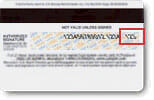Kiwi Auctions
[Author – Tim ODwyer]
Many of us have long warned that real estate auctions across Australia are little more than devices for deception. What about in New Zealand? Might Aussies learn anything from the Kiwis about how to make auctions more honest?

While limited reforms are being introduced into real estate auction laws in some parts of Australia, consider this tale from across the Tasman.
A property, with a reserve of $235,000.00, was set for auction with other properties at the selling agent’s premises. Before any properties were put up, the auctioneer read out the sale conditions. These included a vendor’s right to bid personally (or by an agent or by the auctioneer) and that, subject to the reserve being reached, the highest bidder would be the purchaser. This particular property came up at its advertised time, but the auction conditions were not re-read.
The auctioneer made the only bids. These started at $110,000.00 and moved quickly by $10,000.00 rises to $180,000.00. Then came a bid of $185,000.00 before the property was passed in on a final bid of $190,000.00. The property was sold some time after the auction for $210,000.00.
In due course New Zealand’s Court of Appeal heard an appeal from a test case on the conduct of this auction, particularly the auctioneer’s “vendor bidding”. This had been initiated by New Zealand’s Commerce Commission, the equivalent of Australia’s various Fair Trading and Consumer Affairs Departments. The court found that the auctioneer, despite making all the bids on behalf of the vendor, had not engaged in any misleading or deceptive conduct.
In passing, the court ominously stated the bleeding obvious:
“Auctions, like other sales, must be conducted in a manner which does not mislead or deceive, and if this means that auctioneers’ practices must change, then so be it. Plainly it will be misleading to create the illusion of real competition where there is none.”
Despite losing the case miserably, the Commission welcomed four other observations by the court:
- Auctioneers should not orchestrate a bidding process which might mislead or deceive people intending to bid or to negotiate afterwards. (Nothing was said about a process duping auctioneers’ and agents’ own vendor clients.)
- Auctioneers and agents should not expect prospective buyers to be familiar with auction procedures or to have taken prior legal advice. (No mention again of the poor old vendors.)
- Auctioneers should announce, specifically before bidding begins for any particular property, not only that there is a reserve price but also that bids may be made by or on behalf of the vendor until that price is reached.
- Auctioneers should identify and distinguish genuine bids from vendor bids with plain, understandable language. The actual words “vendor’s bid” are not essential so a degree of non-misleading shorthand may suffice. (Presumably for the benefit of buyers and vendors alike.)
The Commission did score some minor points. Very early the agency involved agreed that it had been misleading in two instances. Firstly its pre-auction advertising mentioned “bidding from $110,000.00” when any bid near that figure would have had Buckleys because of the much higher reserve. Secondly the agency’s post-auction advertising stated that bidding had reached $190,000.00 without disclosing that the only bids had been vendor bids.
The main reason this case fell in a heap was that, not unlike some Australian regulators, the Commerce Commission’s investigation of the vendors’ complaint (less about the auction and more about the agency’s marketing of the property) was reprehensively leisurely. No detailed witness statements were taken for some 15 months, and the auctioneer was not interviewed at all! As a result the Commission could not convince the court, on the balance of probabilities, what the auctioneer actually said or did, and whether his conduct might have deceived people at the auction. Similarly the Commission could not prove a charge that the auctioneer deceptively pretended to take bids from around the room by addressing non-existent bidders as “Sir” or “Madam”.
Nevertheless the auctioneer gave evidence at the hearing. He could recall the actual auction so long after the event, but conceded that on occasions at auctions he would look at someone present and say, “The bid is against you sir/madam.” The president of New Zealand’s Real Estate Institute gave evidence that, as an auctioneer, he would identify a vendor bid with terms like “the bid is with me” or “I have the bid now.”
The sooner the governments of all Australian States and Territories (and perhaps also of New Zealand) outlaw the farce of vendor bids, the better for consumers. It is not enough to limit the number of such bids or to require the announcement of each vendor bid as such before it is made. Until vendor bidding is universally banned real estate institutes will continue to mischievously maintain that “vendor bidding is a legal and ethical process.”
Meanwhile Graeme Samuel, Australian Competition and Consumer Commission Chairman, finds little difference between vendor bidding and dummy bidding. He remarks that vendors have no more intention of buying their own property than has “the tree or the gnome in the garden.”
(A version of this article originally appeared in Property Review)
To post your comment on this item, please return to


